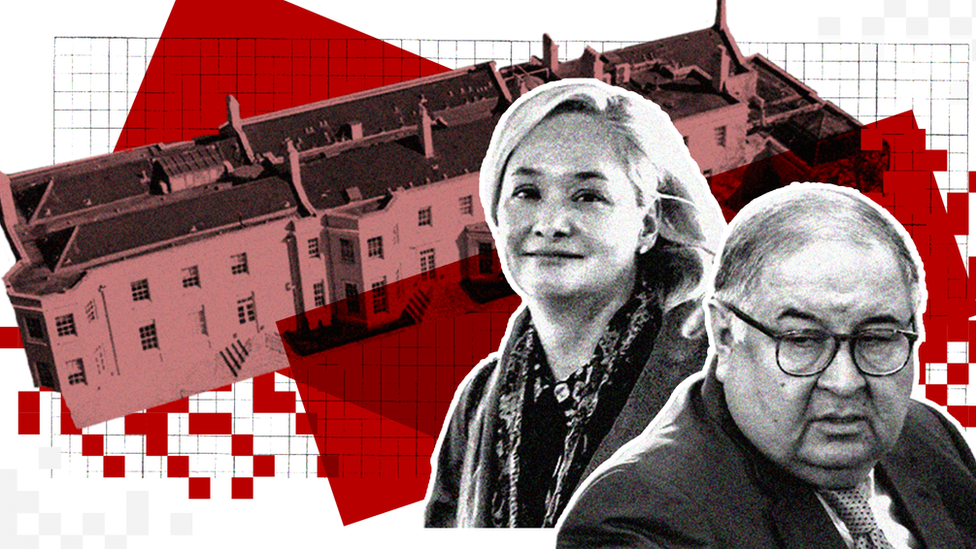Russia superyacht symbolises challenge of seizing assets
- Published
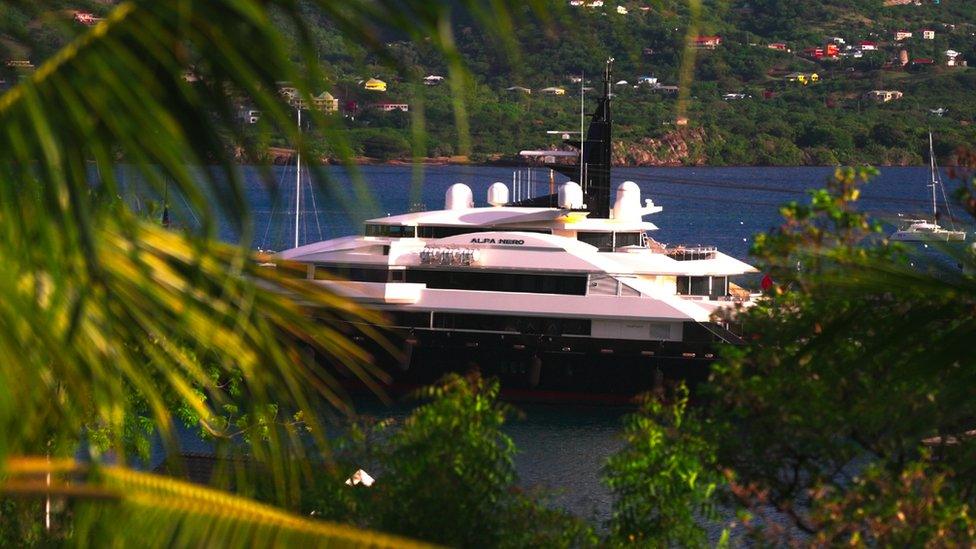
A legal battle over who owns a luxury superyacht symbolises the difficulties of seizing Russian assets since the war in Ukraine started.
When BBC reporters investigated the case of the £54m Alfa Nero, it led them to a British firm whose lawful help allows a Russian oligarch to claim that such mega-assets do not really belong to him at all.
This week a court case resumes in Antigua. It was launched by the daughter of Russian billionaire Andrey Guryev to challenge the seizure of the Alfa Nero superyacht.
The island's government wants to sell the vessel and keep the proceeds. It even changed the law ahead of auctioning the yacht off last June.
It was eventually purchased by former Google CEO Eric Schmidt for £54m, but he has now withdrawn his bid amid a flurry of legal challenges, including the one from Mr Guryev's daughter.
She claims she is the sole adult beneficiary of the trust that owns the yacht, rather than her billionaire father.
Investigating that challenge led the BBC to uncover some £500m worth of assets connected to the sanctioned billionaire.
It also helped reveal how trust structures lawfully managed by a British firm over many years allow Mr Guryev to claim, by the time he was sanctioned, that the yachts and London properties we have identified do not belong to him at all.
The Kremlin connection
On a tour in Antigua's exclusive Falmouth Harbour, a port employee is open to talking about the Alfa Nero's many features, but when we ask who used to own it, his tone changes.
"I don't know," he says, as he looks down at the gleaming, teak deck.
Before the yacht was seized in April, the US government said it belonged to Mr Guryev, whom it called a "known close associate" of Vladimir Putin.
The US Treasury says Mr Guryev is part of a group of "Kremlin-connected elites" who "generate substantial revenue for the Russian regime".
Mr Guryev earned his wealth from PhosAgro, a fertiliser company he co-founded following the collapse of the Soviet Union.
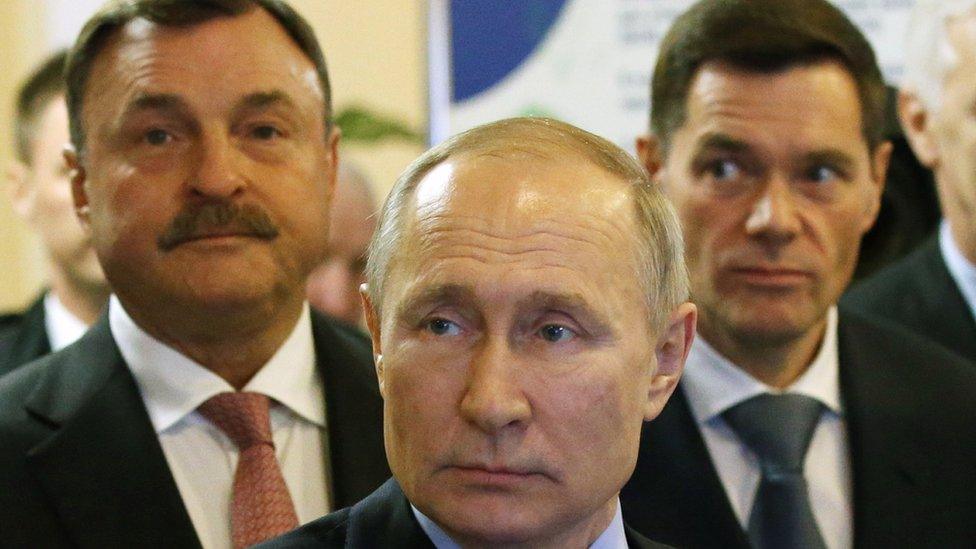
The US describes Andrey Guryev (left) as a "known close associate" of Vladimir Putin
By the time PhosAgro listed on the London Stock Exchange in 2011, Mr Guryev had bought Witanhurst Estate, a dilapidated Georgian mansion he transformed into one of London's most expensive properties, estimated to be worth £300m.
Companies House filings submitted in May 2023 show Witanhurst Estate, along with the Alfa Nero, is actually connected to the Guryev family through an address in Guernsey, a British crown dependency.
And they are not the only incredibly valuable assets linked to this same address in the Channel Islands.
The Luminosity is one of the world's biggest hybrid superyachts, measuring in at 353ft (107.5m). It has its own helipad plus a separate swimming pool and jacuzzi, along with dozens of staff.
Shortly after Russia's invasion of Ukraine began, the Luminosity left port in northern Italy, arriving in non-EU Montenegro on 10 March.
That was the day after Mr Guryev's son was sanctioned by the EU.
When a government inspector boarded, they discovered that this huge vessel was also linked to the same address in Guernsey.
'Not our client'
When you travel to that address, you find the unassuming offices of a wealth manager called Opus Private.
On its website, the firm said it helped "some of the world's wealthiest individuals manage and protect their assets".
Along with a number of other properties, including a £50m London penthouse, we established a total Guryev family portfolio worth over £500m, all linked to this one firm.
We have also seen documents showing the relationship has been going on for at least a decade.
Back in Antigua, that relationship with at least some members of the Guryev family continues.
Court documents we have seen show Opus Private was involved in a legal action that failed to stop the Alfa Nero initially being auctioned off.
It is important to note that it is legal to keep working for a sanctioned individual, with government permission, and Mr Guryev's daughter has not been sanctioned by the UK, EU or US.
The court documents detail how ownership of the superyacht is tied up in a trust, which a judge in Antigua suggested Mr Guryev still exercised a degree of control over.
We know there has been a change in the beneficiaries of the trust, but we cannot independently determine when it happened. If it was after sanctions were imposed, it would be unlawful; if it was before, it would not.
Both Mr Guryev's daughter and Opus told us it happened before her father was sanctioned.
Opus also insisted that Mr Guryev was not their client as he was no longer a beneficiary of the trust.
But the firm says it has made UK and Guernsey authorities aware of the trust assets it treats as frozen in line with UK sanctions against Mr Guryev. It says it treats these assets as frozen because, while Mr Guryev is not a beneficiary of the trust, he is deemed to have "control" over it under UK sanctions law.
A very different approach in Ukraine
These assets are being watched closely in Ukraine, where the cost of war damage is estimated at more than £300bn, and rising.
"We've been quite intensively confiscating assets belonging to Russian individuals," says Vlad Vlasiuk, a sanctions adviser to Ukraine's president Volodymyr Zelensky.
Not only has Ukraine sanctioned around 9,000 people and companies, it has gone further than most of its allies in moving from freezing to seizing assets. Among those sanctioned by Ukraine are Mr Guryev, his son, wife and daughter.
"We think that Mr Putin is weaponising the fertiliser [industry] and threatening the whole of the world in terms of global food security. We don't want that to happen," Mr Vlasiuk says.
Since the sanctions were imposed, Guryev Snr and Jnr have both resigned their positions at PhosAgro, but the family remains major shareholders.
The company - which operates globally - has made record sales since the invasion, and Guryev Jnr even met President Putin in April to discuss the fertiliser industry.
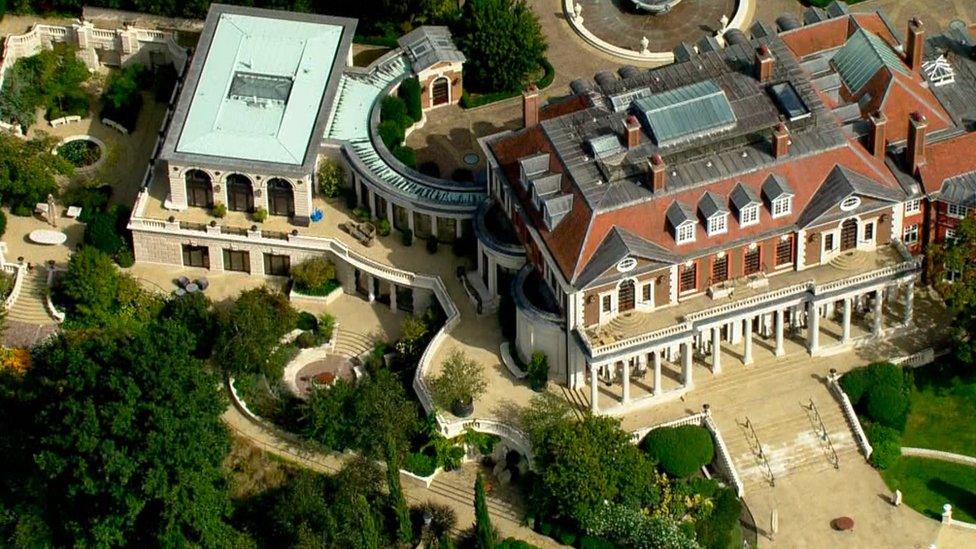
Mr Guryev bought Witanhurst Estate and transformed it into one of London's most expensive properties
Mr Vlasyiuk would like to see the UK go further when it comes to frozen assets linked to Mr Guryev: "I think those assets should be confiscated and then transferred to Ukraine."
They include the Witanhurst Estate and a five-storey penthouse with views across the River Thames, estimated to be worth £50m.
"Those monies would be very much used to rebuild Ukraine and that would also send a strong message," he says.
The UK government's position is to hold on to frozen assets until Russia pays compensation for the war damage it has caused in Ukraine.
The two departments responsible for sanctions, the Treasury and the Foreign, Commonwealth and Development Office, did not respond to specific questions about the Guryev family's UK-based assets.
A spokesman for Mr Guryev said there was no "proper or legitimate basis" for the sanctions against him.
Opus Private told us: "Trusts are legal structures, and their use is lawful. Opus provides trust services to, and for the benefit of, the discretionary beneficiaries of the trust structure."
"It provides those trust services in compliance with all applicable laws," it said.
Additional reporting by Yordan Tsalov
Related topics
- Published23 February 2024
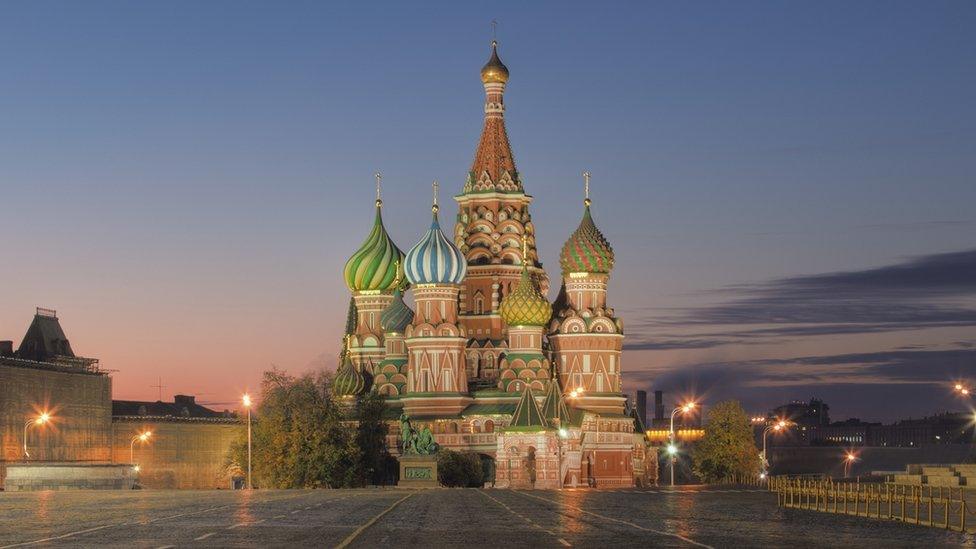
- Published11 November 2022
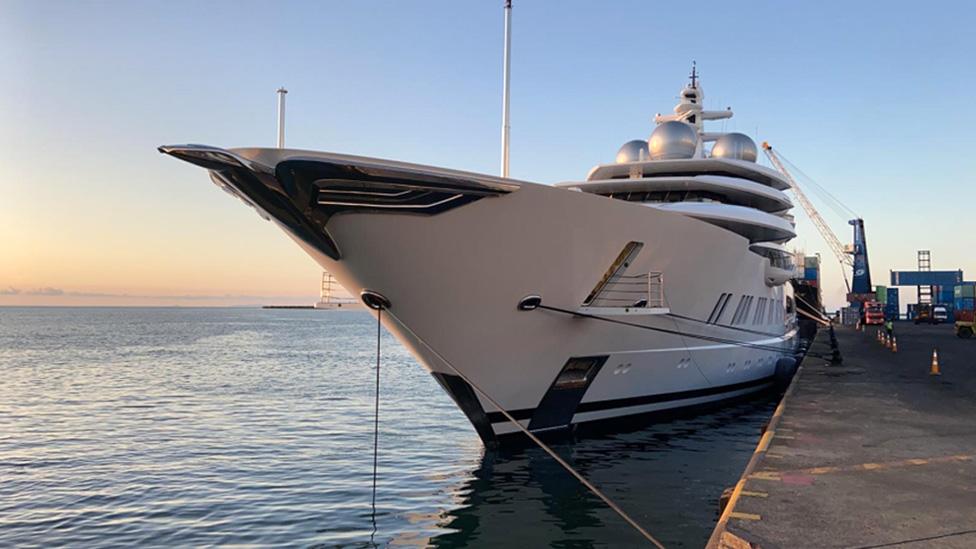
- Published7 February 2023
